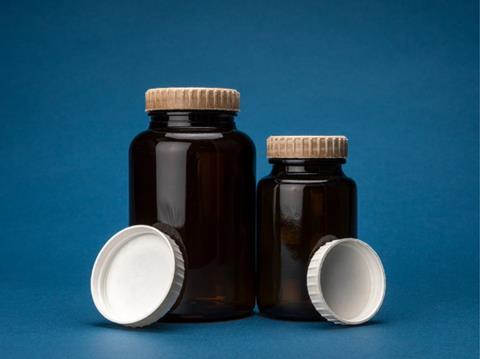
Blue Ocean Closures was the winner of the Recyclable Packaging category at this year’s Sustainability Awards with its fibre-based screw cap, recyclable in the paper stream. We spoke to the company to find out more about this innovation.
You’re a winner in the Sustainability Awards 2025. Congratulations! Could you summarize your entry, in less than 50 words?
The first to market fibre-based screw cap by Blue Ocean Closures is a breakthrough solution to increase recyclability in packaging and reduce the use of plastics. The closure is certified recyclable as paper and supports real recycling performance, as part of the most widely established recycling stream worldwide.
Why do you think the judges were impressed with your entry? Tell us about what is innovative about your project and/or about its impact on packaging sustainability.
The fibre-based closure for nutraceuticals, NutraCap, that is now on the market and commercially available, is the first of its kind in the closure and caps packaging category. Until now, the vast majority of packaging closures with advanced shapes, properties and the functionality required have been made of plastics.
Never before have consumers and consumer product brands had the choice of replacing caps with a solution made of biobased materials, especially not in the volumes needed to make such a shift.
Due to the huge volumes of closures being produced and consumed globally every year and the difficulties of recycling plastic closures, the potential impact of fibre-based closures on packaging sustainability is enormous. Fibre closures fit naturally into existing recycling flows and support consumer sorting behaviour, increasing recycling efficiency.
Fibres withstand up to 25 recycling loops without loss of integrity and can contribute to renewable energy through clean incineration, staying part of the natural carbon cycle. The innovative press forming technology allows for a highly energy efficient and scalable production process, making it possible to meet market demand of big volumes.
Finally, can you tell us about the ongoing development of your project, e.g. how your innovation/initiative has been received by the industry, or what the next steps are in commercialization/product development?
Supplement brands all over the world are engaging to use fibre-based closures and several in Europe have already decided to exchange their current caps on existing designs. The first customer to adopt the solution in 2024, Great Earth of Scandinavia, has made the decision to implement fibre screw caps on their full product portfolio in 2025.
Their decision was based on a thorough evaluation of the market response, showing that consumers and retailers alike highly value the fibre cap. A strong preference for the fibre-based cap compared to the traditional plastic cap is showing in consumer studies, where ease of use, recycling and eco-friendly appeal are among the benefits. In addition, several distributors and filling systems businesses are now including fibre-based closures, since it is a drop-in solution that integrates seamlessly into existing filling machines.
Blue Ocean Closures is moving forward fast and has already commercialized more standard products [besides the 38-400 NutraCap] that are in continuous production, enabling brands to exchange the caps on more product lines. Continued development is also ongoing to expand into more product categories and in other market segments. In conclusion, fibre-based closures offer great opportunities for design for recycling and reducing the carbon footprint of packaging.
Next year’s Sustainability Awards will take place during the Sustainable Packaging Summit in Utrecht, Netherlands, 10-12th November 2026. You can find out more here.
If you liked this story, you might also enjoy:
The ultimate guide to the Packaging and Packaging Waste Regulation in 2025
How are the top brands progressing on packaging sustainability?
Everything you need to know about global packaging sustainability regulation in 2025
The key to increasing the use of reusable packaging in supermarkets














No comments yet